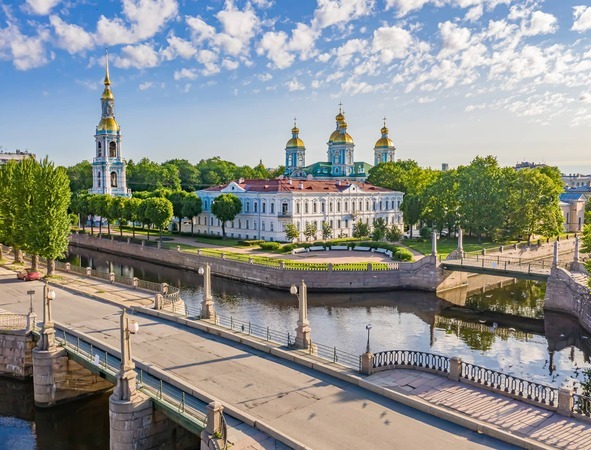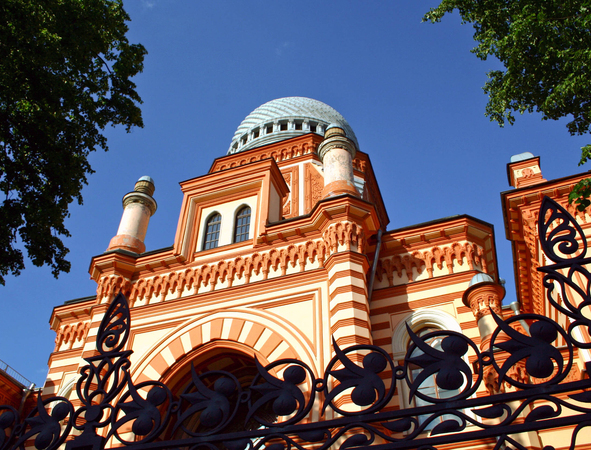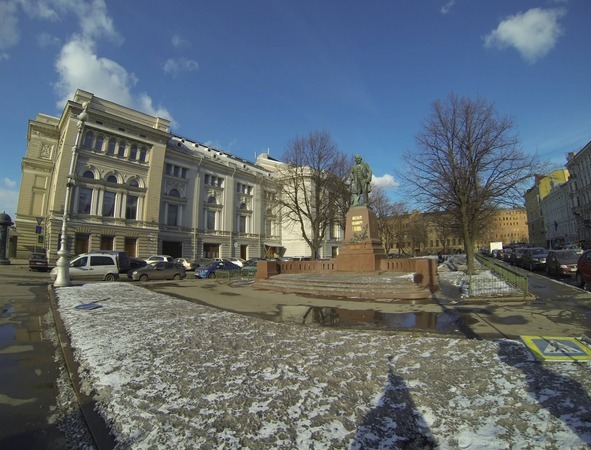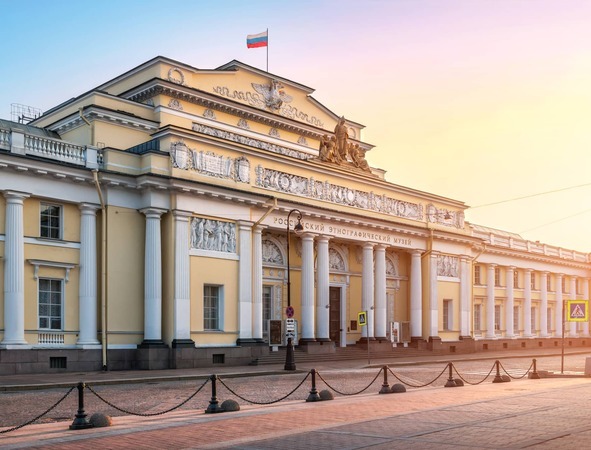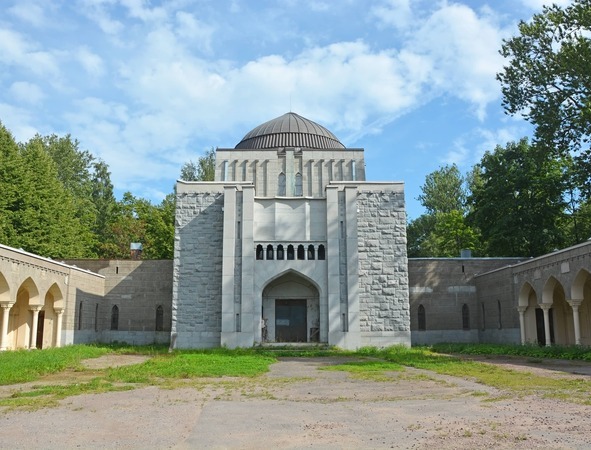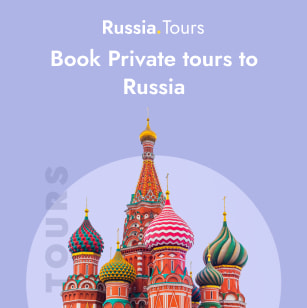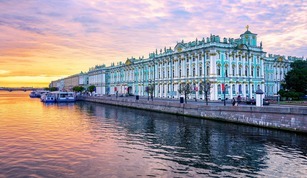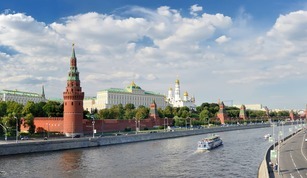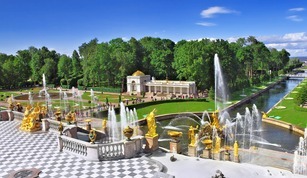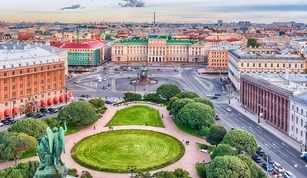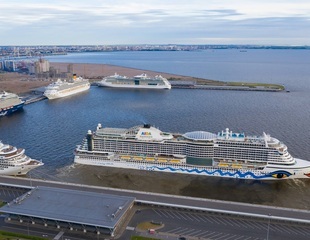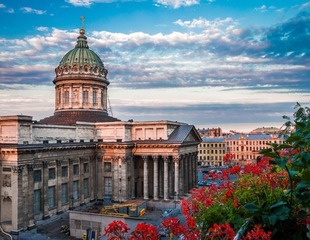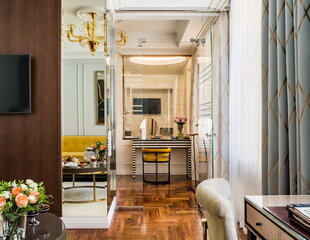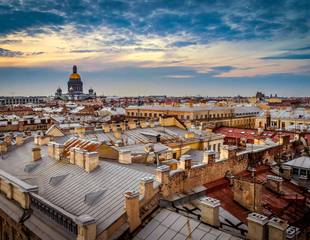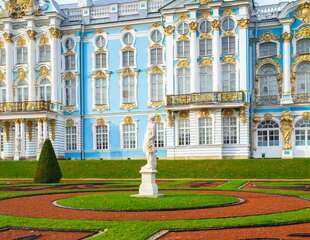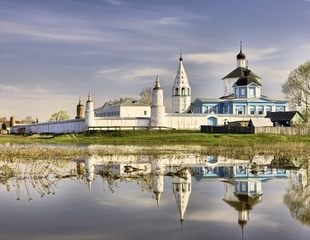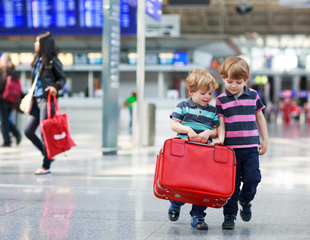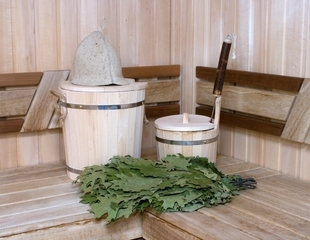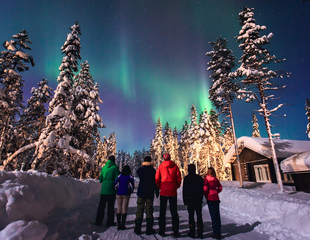09:00 AM Kolomna historical district
 1 hour 30 minutes
1 hour 30 minutes
 District between Fontanka, Moika & Kryukov canal
District between Fontanka, Moika & Kryukov canal
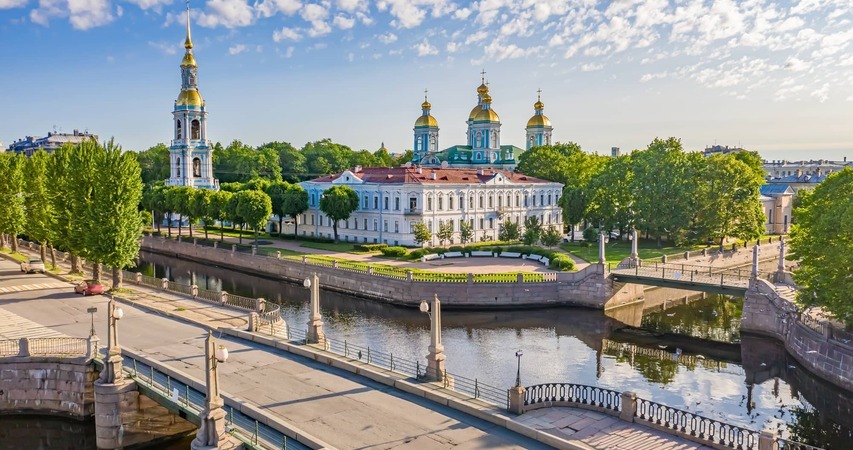
Meet the guide who will drive you to the Old Jewish part of the city - the Kolomna district. It became the center of Jewish life in the XIX century. The Jewish school Yeshiva, some newspapers’ editorials, charitable organizations such as The Society for Helping Poor Jews, The Jewish cheap canteen were also located in Kolomna district, walking distance from Jews’ main worship house – the Grand Choral Synagogue, which was built in this area of the city in 1893.
10:30 AM Grand Choral Synagogue
 1 hour
1 hour
 2, Lermontovsky Avenue
2, Lermontovsky Avenue
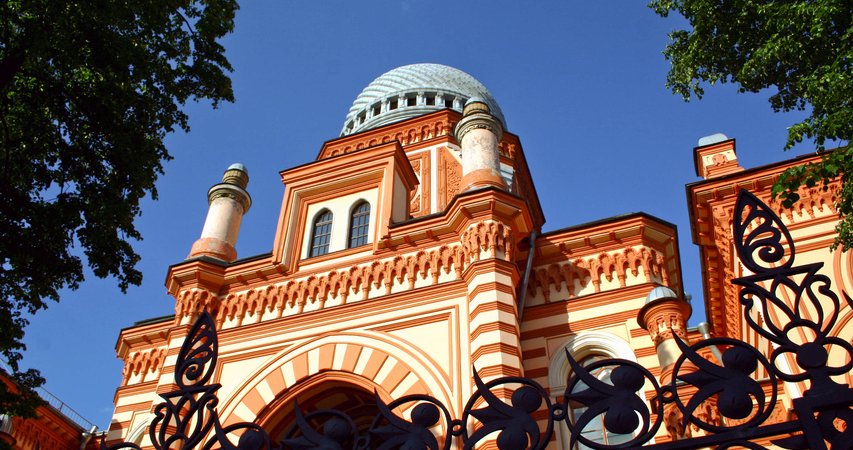
The Grand Choral Synagogue was opened only at the end of the XIX century, under Tsar Alexander the II, who lifted many restrictions against Jews. Apart from being given rights and privileges similar to the non-Jewish population (only for the Upper-class, though), the members of the community were allowed to build their first Synagogue and the cemetery.
Soon after its opening, it became the main center for worshipping. The Grand Choral Synagogue has the main hall for Sabbath services, a wedding hall, rooms for the rabbi and the cantor, a meeting hall for community members, a library, a secretary’s room, and a mikvah in the cellar.
St Petersburg Synagogue is the largest Synagogue of this type in Russia and it is considered to be the second-largest in Europe.
After the tour, you can also visit a shop nearby and the only Mehadrin Kosher restaurant in St Petersburg.
11:30 AM St Petersburg Conservatoire
 10 minutes
10 minutes
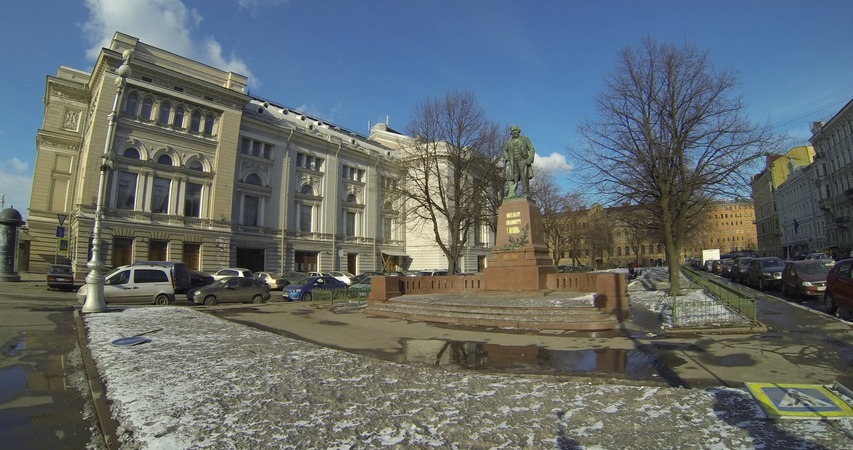
As you leave the Synagogue you will stop at one of the most well-known squares of St Petersburg with the famous Mariinsky Theatre and the Conservatoire building.
Being the most well-known Russian Musical academy, St Petersburg Conservatoire was founded by Anton Rubinstein in 1862. The outstanding composer was a Russian Orthodox of Jewish descent. Among the graduates of the Conservatoire, there were such brilliant violinists as Misha Elman and Yasha Heifets.
12:00 PM Ethnographic Museum
 1 hour
1 hour
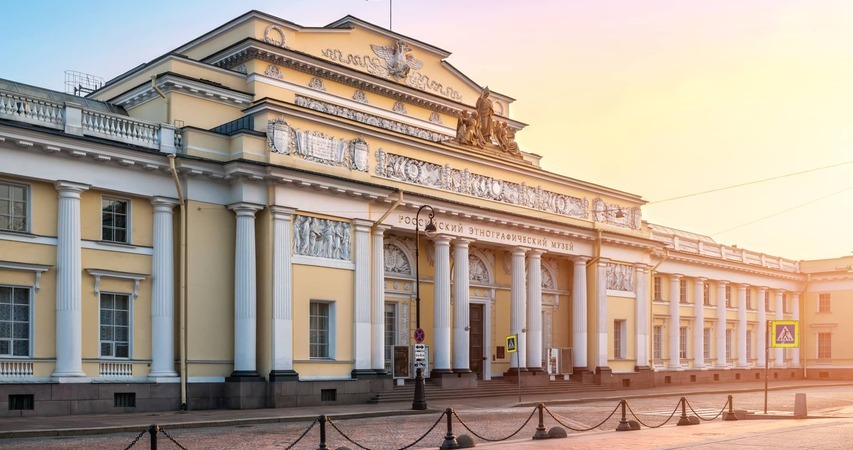
The tour continues at Russia’s richest Museum of Ethnography, which represents the diverse cultural heritage of over 150 peoples living in the country.
The museum's collection spans from the XVIII century up to the XX century. One of its permanent exhibitions is dedicated to the history and the heritage of the Jewish community on the territory of Russia. The museum’s collections are dedicated to Ashkenazi, Georgian, Bukharan, and Mountain Jewry. They represent different stages of community formation and the areas of Jewish residences in Russia.
You can see different personal and historical items, religious books and manuscripts, home utensils, musical instruments, some examples of Jewish clothing, and numerous photographs.
02:00 PM Preobrazhenskoye Jewish cemetery
 1 hour 30 minutes
1 hour 30 minutes
 66A Aleksandrovskoy Fermy Prospect
66A Aleksandrovskoy Fermy Prospect
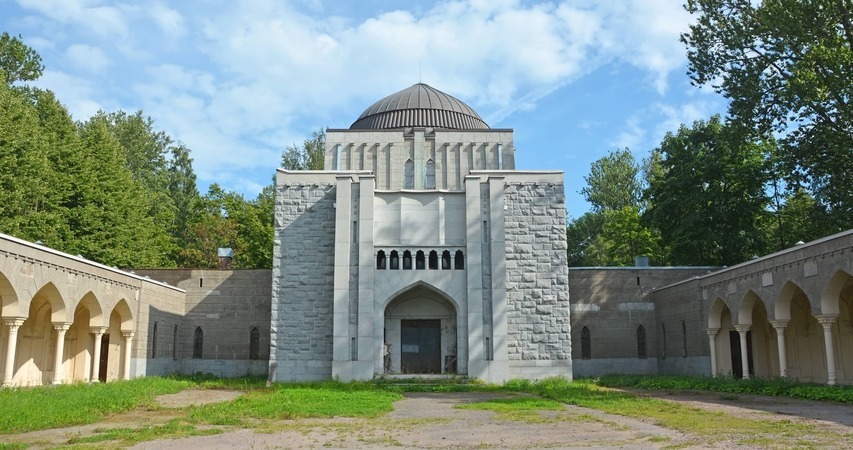
Drive to the Jewish cemetery, which is located in the residential area of the city. It is divided into two parts: the Jewish and the Russian Orthodox. After its opening in 1875, it soon became an important spiritual center for the Jewish population. A prayer house was also built for funeral service purposes. Under the Soviet regime, though, the cemetery was closed down and was often attacked by vandals.
At the cemetery you will see the burial tombs of some prominent St Petersburg Jews such as Mark Antokolsky -a brilliant Russian sculptor; David Ginsburg -the head of the Jewish community in the XIX century; Abraham Lubanov -St Petersburg Synagogue rabbi during the Second World War.
04:00 PM Jewish cultural center YESOD
 1 hour
1 hour
 25 А Bolshaya Raznochinnaya street
25 А Bolshaya Raznochinnaya street
The general population census took place in Russia in 2010 and registered a total of 156801 people of Jewish nationality. A rough estimate for St Petersburg was about 35 000. There are currently about 40 Jewish organizations and centers in St Petersburg.
YESOD is a Jewish cultural community center built in St Petersburg in 2005. YESOD in Hebrew means foundation. As the director of the center says such a name stands for SHELTER, HOME for everyone who might need it.
The center offers various informative and entertaining events and programs, e.g. family, children’s, educational programs. It arranges different festivals, conferences, concerts, and lectures. In addition to this, many exhibitions by Jewish artists are held at YESOD.


